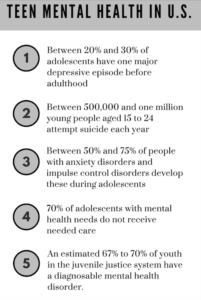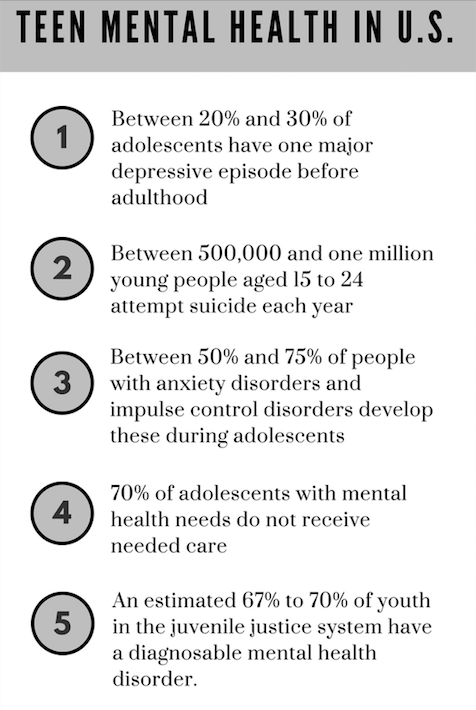Starting in the fall school semester of 2018, the Lick-Wilmerding sophomore students will be required to take one semester of a health education class taught by Ms. Merk and the newly hired teacher, Diana Suarez Fargos. Lick’s hope is for this health education course to prepare the sophomores to live healthy lifestyles where they can care for themselves and others. According to Ms. Merk, the semester-long class will discuss “relationships, sexuality, and more mature sexual education through texts and literature. We plan to use more time to spend on issues related to identity and areas people may be figuring out for themselves or questions. Additionally, mental health will integrated in regular class sessions where we discuss stress, integrate stress reduction work, self care, and we will link classes to changes teenagers are going through and aspects of identity. In terms of grading, we are going to have it be similar to BME with a pass or fail grade and assign homework regularly similar to reflections, journal entries or articles to read so students understand the class is meaningful and take ownership of their own life.” The health department is also trying to integrate PPP hours intro the course for the sophomore class, possibly through an end of the year project. According to both Mr. Barnett and Ms. Merk, this sophomore health class has been in the works for a long time so they are both very excited to be able to create an interesting and positive space which is also an important addition for curriculum. Mr. Barnett noted that “students have been wanting a deeper sex education for a while because BME wasn’t completely focused on sex ed and the availability to integrate a health class for sophomores would take away from their ability to take shops classes their sophomore year. We felt like it was so important to encourage students to take care of their tech arts requirements so now it will still be available because they are only taking one semester of this sophomore health class. We’ve been trying to create a sophomore health class for over 10 years to as it is the schools responsibility to discuss consent and sexual health, increased awareness of gender spectrum and understanding of relationships, mental health (such as rising levels of stress and anxiety) as well as drugs, alcohol, pregnancy.”

Freshmen are currently learning about topics surrounding health and sex-ed through the mandatory Body Mind Education (BME) course. Additionally, freshman learn about various topics similar to health through school assemblies, advisory meetings, and frosh rotation conversations. Despite learning about such topics during their freshman year, statistical evidence has suggested that education regarding health is vital and important to continue throughout sophomore year. Though the goal of this course is to educate sophomores and support their needs to learn about health-related topics, freshman Catalina Morales ’21 noted that she does “not appreciate it. I was really looking forward to the electives but now I am going to have to take a semester of health class and I’m unsure if it will be that beneficial for me.” However, rising junior Mira Larrance ’20 commented saying “I have mixed feelings. On one hand, it’s a bummer for the sophomores schedule because they now have limited electives. I also think some people need the class much more than others, so it’s kind of unfair for those who are being forced to take it. But on the other hand, this health class is an important course which probably includes topics that aren’t really talked about that much. As a sophomore, I really enjoyed having two electives and the option of two frees so I do wish it didn’t take up a block in their schedule because that sucks for them but it is only a semester.”
A 2004 report by the Institute of Medicine on health literacy states that “the most effective means to improve health literacy is to ensure that education about health is part of the curriculum at all levels of education.” According to the World Health Organization (WHO), effective school health programs should be intense and begin prior to the onset of the risky behaviors. Both primary and secondary schools should have a planned, sequenced curriculum, and having the opportunity to discuss health topics in small groups is the most effective and most relevant training for their developmental age.
The San Francisco Unified School District requires all high school students to take a minimum of one semester of health education. The SFUSD health courses are taught through projects, guest speakers, field trips, and exams to complete the 90-day semester. Students in public school in SF are taught lessons on:
- Growth and development through a comprehensive sexuality curriculum
- Alcohol, tobacco, and other drugs
- Nutrition and physical activity
- Mental, emotional, and social health
- Safety and injury and violence prevention
- Other health content areas and relevant health issues
Health classes among school have been a vital class to students education due to the lack of education. As high school students are in the midst of adolescence, education is an important factor to insure safety and awareness. The typical angsty and attitude-induced teenager is a stereotype which has been normalized over time because there has been an old cliche that it’s a “phase” for teenagers to be emotional. While teenagers do experience a plethora of feelings throughout the transitional stage of physical and psychological development, mental health isn’t something to be thought of as a stage of one’s life. Major depressive episode (MDE) is a low mood one experiences with symptoms such as low self-esteem, loss of interest in normally enjoyable activities, and problems with sleep, energy and concentration. MDE has shown to be common among young people aged 12-20. A study of national trends in depression among adolescents and young adults in November of 2016 found that the prevalence of teens who reported an MDE in the previous 12 months jumped from 8.7% in 2005 to 11.5% in 2014.
According to the National Institute of Mental Health (NIMH), suicide was the second leading cause of death among individuals between the ages of 10 and 34 as suicide among adolescents and young adults is increasing. Youths often feel pressured throughout their academic careers with stress about grades, social lives, online and social media standards, experimentation with drugs and substances which have negative impacts on students.
While the mental and psychological healthcare of students is important to be addressed through this course, it’s also important to address lessons based on students’ needs and concerns regarding consumer health, accessing and applying for affordable health care, environmental health, community health, communicable and lifestyle diseases. Other lessons which might be included in the course could be about decision making, communication in dating relationships, relationship violence, reproductive anatomy and physiology, pregnancy, childbirth, parenting, contraception, infections, sexual healthcare rights and resources, gender, sexuality, family diversity, and LGBTQ awareness.






